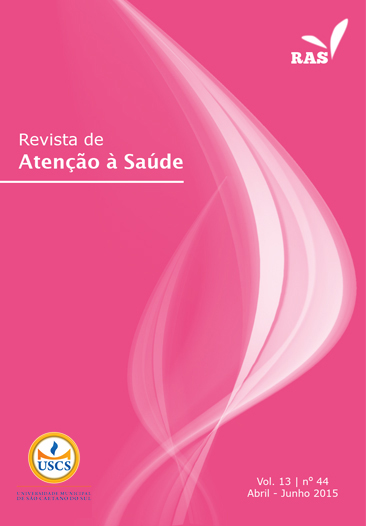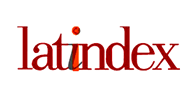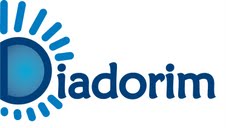PROTEIN INTAKE AND NUTRITIONAL NEEDS OF VEGETARIAN COLLEGE STUDENTS
DOI:
https://doi.org/10.13037/ras.vol13n44.2809Keywords:
Vegetarian diet, nutritional requirements, feeding behavior, protein needsAbstract
Introduction: Currently the vegetarian population is increasing significantly, and it is recommended thathealth professionals have the necessary knowledge of the subject and about possible risks and benefits ofthis type of diet. Vegetable protein sources contain lower protein content than animal and presents limitingamino acids. Therefore, vegetarians need to consume proteins in larger quantities. Objectives: To assesprotein intake and compare it to nutritional needs of vegetarian college students of University of Itaúna(MG). As secondary objective was research the nutritional status and the motives and claimed benefitsfor adopting a vegetarian diet. Methods: An analysis of protein intake through a quantitative questionnaireof food frequency containing food that have protein was performed. Protein concentration of thefood was assessed using a food composition table (TACO) and the table of portion sizes and comparedaccording to the Dietary Reference Intakes (DRI) as age, sex and weight. Results: The study included 30vegetarians. Of these, 56.7% were classified as semi-vegetarians, 40.0% ovolactovegetarians and 3.3%lacto-vegetarians. On protein intake, 76.7% of participants had adequate intake, and of this total, 66.7% were semi-vegetarians and 88.2% ovolactovegetarians. Regarding nutritional status, 63.6% of subjects were classified as normal,23.3% as undeweight grade I and 13.3% as overweight. Conclusion: Protein intake was reached by most of those surveyed.There was more appropriate level for semi-vegetarianism adherents. However, it is important to have a specific nutritionalcounseling for each type of vegetarian diet.Downloads
References
1. Nascimento IS. Vegetarianos do Brasil: Consumo x produção
de carne. 2008. Monografia – Centro de Desenvolvimento
Sustentável Universidade de Brasília (CDE-UnB), Brasília,
2008.
2. Souza AN, Araújo AP, Alvarenga D, Freitas L, Zamagno M.
Alimentação vegetariana [monografia da internet]. UFJF, Juiz de Fora; 2010[acesso em 15 jan 2012]. Disponível em:
3. Couceiro P, Slywitch E, Lenz F. Padrão alimentar da dieta
vegetariana. Einstein 2008;6(3):365-73.
4. Angelis RC. A importância dos alimentos vegetais na proteção da saúde. 2a
ed. São Paulo: Atheneu; 2005.
5. Young VR, Pellett PL. Plant proteins in relation to human protein and aminoacid nutrition. Am J Clin Nutr.
1994;59:1203-1212.
6. Miranda N, Bortoli MC, Cozzolino SMF. Nutrientes e dietas vegetarianas. In: Cozzolino SMF. Biodisponibilidade de
nutrientes. 3ª ed. Barueri: Manole; 2009. p. 1107-1140.
7. Messina V, Mangels AR. Considerations in planning vegan
diets: children. J Am Diet Assoc. 2001;101(6):661-9.
8. World Health Organization. Obesity: preventing and managing the global epidemic – report of a WHO consultation
on obesity. Geneva: World Health Organization, 1997.
9. Unicamp. Tabela brasileira de composição de alimentos/
NEPA-Unicamp. Versão II. 2ª ed. Campinas: NEPAUnicamp; 2006.
10. Pinheiro ABV, Lacerda EMA, Benzecry EH, Gomes MCS,
Costa VM. Tabela para Avaliação de Consumo Alimentar
em Medidas Caseiras; 2006.
11. Dietary reference intakes for energy, carbohydrate, fiber, fat,
fatty acids, cholesterol, protein and amino acids. Institute of
Medicine, Food and Nutrition Board: National Academic
Press; 2005. p. 589-762.
12. Guia alimentar de dietas vegetarianas para adultos; 2012.
[Acesso em: 15 de fev 20012]. Disponível em: www.svb.org.
br/vegetarianismo/index.php
13. Davey GK, Spencer EA, Appleby PN, Allen NE, Knox
KH, Key TJ. EPIC-Oxford: lifestyle characteristics and
nutrient intakes in a cohort of 33 883 meat-eaters and
31 546 non meat-eaters in the UK. Public Health Nutr.
2003;6(3):259-69.
14. Miranda DEGA, Gomes AR, Morais JÁ, Tonetti TC,
Vassimon HS. Qualidade nutricional de dietas e estado nutricional de vegetarianos. Demetra. 2013;8(2):163-172
15. Brasil. Instituto Brasileiro de Geografia e Estatística. POF
2008-2009: desnutrição cai e peso das crianças brasileiras
ultrapassa padrão internacional. 27 ago 2010 [acesso em: 1
jun 2012]. Disponível em: http://cod.ibge.gov.br/27ly0.
16. Mintel International Group Limited. Eating habits-US. July
2004. Chicago, IL: Mintel International Group Limited;
2004.
17. Greif S. Vegetarianismo e prevenção à poluição. [Acesso
em: 10 de jan 2012]. Disponível em: http://www.svb.org.
br/depmeioambiente/VegetarianismoePrevencaoaPoluicao.
htm
18. Sacks FM, Kass EH. Baixa pressão arterial em vegetarianos: efeitos de alimentos específicos e nutrientes. Am J Clin
Nutr. 1988;48:795-800.
19. Ferreira LG, Burini RC, Maia AF. Dietas vegetarianas e desempenho esportivo. Rev Nutr. 2006;19(4):469-477.
20. Instituto Brasileiro de Opinião Pública e Estatística. Mídia revela hábitos de saúde e de consumo da mulher brasileira [acesso em 17 maio 2012]. Disponível em: http://
www.ibope.com.br/calandraWeb/servlet/CalandraRedirect?temp=5&proj=PortalIBOPE&pub=T&db=caldb&comp=IBOPE+M%EDdia&docid=092582CC36D2FBFB8325784800405FB8.
21. Leta J. As mulheres na ciência brasileira: crescimento, contrastes e um perfil de sucesso. Est Avanç.
2003;17(49):271-284.
22. INEP/MEC, Instituto Nacional de Estudos e Pesquisas
Educacionais Anísio Teixeira. EDUDATABRASIL – Sistema
de Estatísticas Educacionais [acesso em: 01 jun 2012].
Disponível em: http://www.edudatabrasil.inep.gov.br/
23. Škėmienė L, Ustinavičienė R, Piešinė L, Radišauskas R.
Department of environmental and occupational medicine.
Lithuania: Kaunas University of Medicine; 2007.; 43(2).
24. Scagliusi FB, Júnior AHL. Subnotificação da ingestão
energética na avaliação do consumo alimentar. Rev Nutr.
2003;16(4):471-481.
25. Schoeller DA. How accurate is self-reported dietary energy
intake? Nutr Rev. 1990;48:373-9.
26. Sociedade Vegetariana Brasileira [homepage na internet].
Tudo o que você precisa saber sobre alimentação vegetariana [acesso em: 28 maio 2012]. Disponível em: www.
svb.org.br
Downloads
Published
Issue
Section
License
Copyright (c) 2015 Elisiane Teixeira Rezende, Samantha Estela Godinho, Ana Cláudia Nogueira de Melo Souza, Lívia Garcia Ferreira

This work is licensed under a Creative Commons Attribution-NonCommercial-NoDerivatives 4.0 International License.
Policy Proposal for Journals offering Free Delayed Access
Authors who publish in this magazine agree to the following terms:
- Authors maintain the copyright and grant the journal the right to the first publication, with the work simultaneously licensed under a Creative Commons Attribution License after publication, allowing the sharing of the work with recognition of the authorship of the work and initial publication in this journal.
- Authors are authorized to assume additional contracts separately, for non-exclusive distribution of the version of the work published in this magazine (eg, publishing in institutional repository or as a book chapter), with the acknowledgment of the authorship and initial publication in this journal.
- Authors are allowed and encouraged to publish and distribute their work online (eg in institutional repositories or on their personal page) at any point before or during the editorial process, as this can generate productive changes, as well as increase impact and citation of the published work (See The Effect of Open Access).









